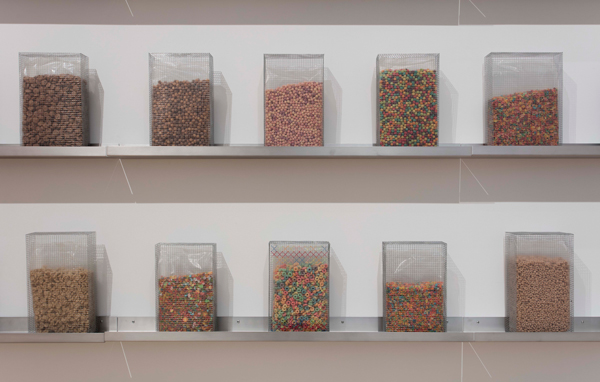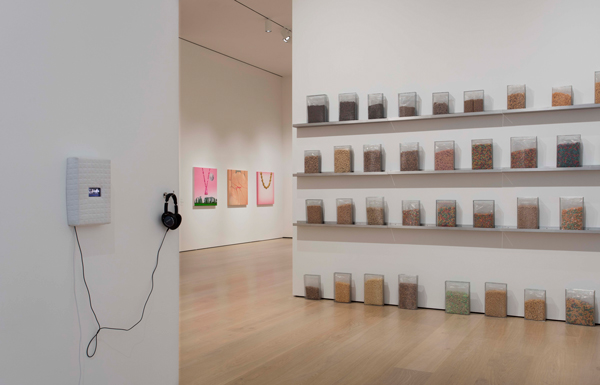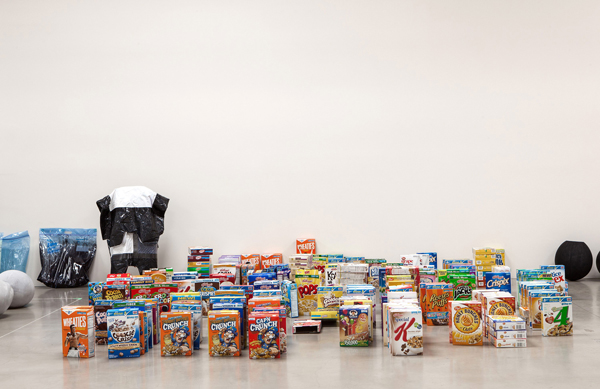Michael Queenland’s installation in Made in L.A. 2018 at the Hammer Museum conjures up images of a post-apocalyptic future, where humans have gathered up their last resources— boxes and boxes of cereal—and rationed them for their imminent escape to outer space. Cereals for space migration (2018) presents rows of cereal in mesh containers. The cereal is stripped of its cardboard boxes, and as a result stripped of any catchy advertising typically used to reel consumers in. The bright unnatural colors and fun shapes of the breakfast food, visible through the mesh, are juxtaposed with the cold regimental display, as though consumerism no longer matters in this grim future—remnants of consumer society.

Installation view, Michael Queenland: Rudy’s Ramp of Remainders, Santa Monica Museum of Art, September 15– December 22, 2012 Courtesy the artist
On the other hand, Queenland’s piece reads as a retail space. The uniform lines of cereal boxes bears resemblance to store displays, envisioning a future where commerce and consumption are dominated by processed products like cereal, which are far removed from organic ingredients. The identical industrial wire mesh containers evoke the idea of mass-production, creating a homogenizing effect. The illusion of uniqueness and ingenuity created by branding and advertising has been stripped away.

Installation view, Michael Queenland: Rudy’s Ramp of Remainders, Santa Monica Museum of Art, September 15– December 22, 2012 Courtesy the artist
The strength of the installation lies in how it raises questions about not only the future, but also about today’s world. The title, Cereals for space migration, implies a sort of escapism, and imagines a future where humans have figured out how to begin a new life beyond the confines of the earth. Have we damaged our planet so beyond repair by this point that we have no choice but to leave it behind and abandon? Or are we merely expanding our horizons and colonizing yet another part of the natural universe. Either way, it spurs reflection on the seemingly irreversible impacts that our actions have had on our world, as well as the consequences of humanity’s limitless thirst for growth and progress, and perhaps greed.


